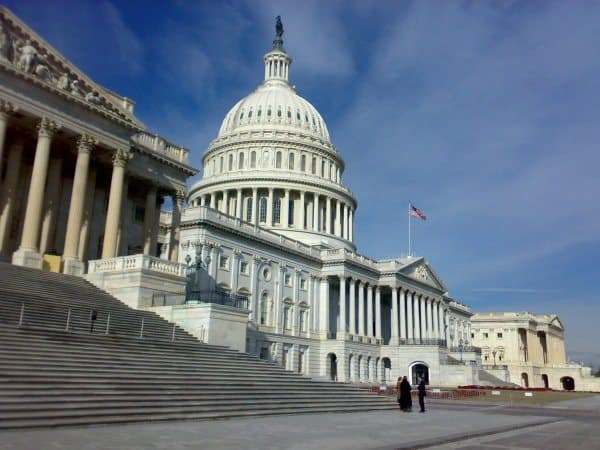 Last week, the 2018 Joint Economic Report from the House Representatives was published. The 334 page document attempts to encapsluate the current state of the economy while addressing challenges and policy issues. The Congressional report outlines an improving economy that is creating jobs while economic growth accelerates.
Last week, the 2018 Joint Economic Report from the House Representatives was published. The 334 page document attempts to encapsluate the current state of the economy while addressing challenges and policy issues. The Congressional report outlines an improving economy that is creating jobs while economic growth accelerates.
But buried within the Congressional report is a segment that attempts to describe and define cryptocurrency and Blockchain innovation.
What are Cryptocurrencies and Blockchain?
Regarding cryptocurrency, like Bitcoin, the report states:
“In this sense, cryptocurrencies resemble real assets or commodities more than currencies, though their future role could expand to include functioning as mediums of exchange.”
Addressing the emerging initial coin offering (ICO) market, the authors explain why ICOs have grown so rapidly. One of the reasons is cost. Today, in the US, an initial public offering costs “between four to seven percent of the capital raised and an additional $4.2 million in accounting costs. Further, after surveying chief financial officers, PricewaterhouseCoopers found that companies spend between $1 million and $2 million annually on maintaining their status.”
To launch an ICO, the cost to an issuer is “approximately $60,000.”
The report admits that most of the issuers of an ICO will fail;
“Many of these projects will likely fail, as most startups do, but the ones that do survive could transform the way the internet and technology works for decades to come.”
While much of the media coverage is focused on crypto and the hot ICO market the authors worry that hype will hide the true transformation occurring today – that of Blockchain technology.
Blockchain will not only be used in financial services but distributed ledgers stand to transform a whole host of industries.
 And what about regulation of crypto?
And what about regulation of crypto?
“Solving the challenges cryptocurrencies and blockchains present will require unique solutions that balance the needs of consumer protection, security, and entrepreneurship. While it is impossible to determine precisely which rules, regulations, and guidance will result from this process, one thing is certain. Regulatory agencies will need to coordinate to ensure they do not work at cross purposes. America is already subject to a complex set of regulatory institutions governing financial products and transactions. As Perianne Boring of the Chamber of Digital Commerce highlighted, this regulatory web produced four different classifications of digital assets (commodity, security, currency, and property),472 which is not conducive an environment where entrepreneurs are enthusiastic about launching a startup.”
[clickToTweet tweet=”Regulatory agencies will need to coordinate to ensure they do not work at cross purposes. America is already subject to a complex set of regulatory institutions governing financial products and transactions #ICO #Cryptocurrency” quote=”Regulatory agencies will need to coordinate to ensure they do not work at cross purposes. America is already subject to a complex set of regulatory institutions governing financial products and transactions #ICO #Cryptocurrency”]
It is a fact that the current financial regulatory regime is “not conducive an environment where entrepreneurs are enthusiastic about launching a startup.”
Innovation at Risk?
The Report recommends that policy makers work together to “coherent policy frameworks, definitions, and jurisdiction.” Otherwise, innovation and entrepreneurship will be placed at risk within a country that ostensibly values innovation.

